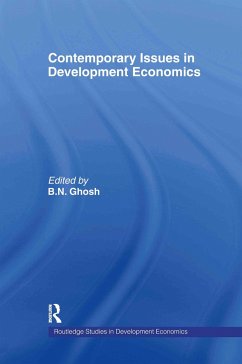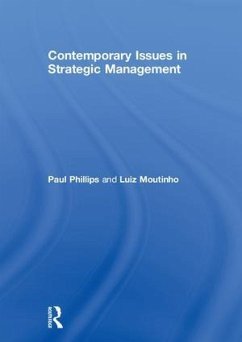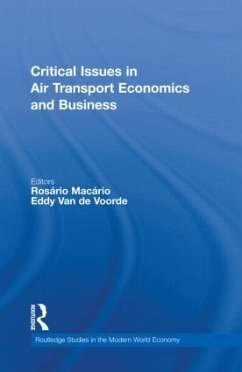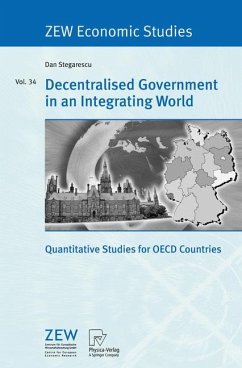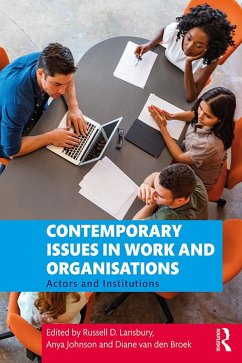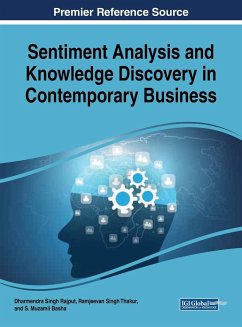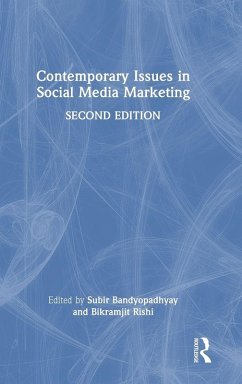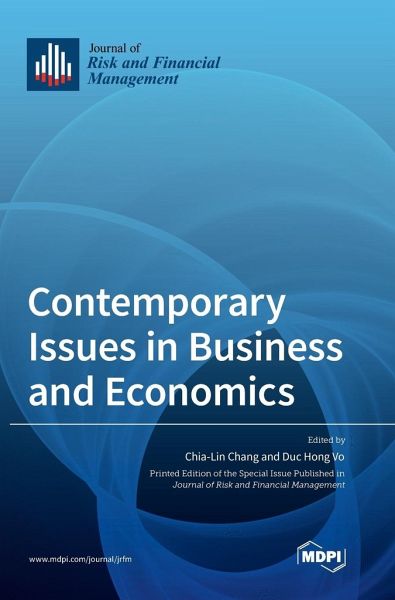
Contemporary Issues in Business and Economics
Versandkostenfrei!
Versandfertig in 1-2 Wochen
71,99 €
inkl. MwSt.

PAYBACK Punkte
36 °P sammeln!
This book is a collection of high-impact papers accepted and presented at the 2019 Vietnam's Business and Economics Research Conference (VBER2019) organised by Ho Chi Minh City Open University held on 18th-20th July 2019. The Special Issue is associated with a broad coverage of the contemporary issues in Business and Economics in Vietnam and other emerging markets reflecting a key theme of VBER2019: Vietnam's Place in the Asia Pacific Region. A total of 14 papers were published from more than the 120 submissions to the VBER2019 Conference. Published papers had been undergone a rigorous reviewi...
This book is a collection of high-impact papers accepted and presented at the 2019 Vietnam's Business and Economics Research Conference (VBER2019) organised by Ho Chi Minh City Open University held on 18th-20th July 2019. The Special Issue is associated with a broad coverage of the contemporary issues in Business and Economics in Vietnam and other emerging markets reflecting a key theme of VBER2019: Vietnam's Place in the Asia Pacific Region. A total of 14 papers were published from more than the 120 submissions to the VBER2019 Conference. Published papers had been undergone a rigorous reviewing process conducted by the Journal of Risk and Financial Management. The papers incorporated in this book address contemporary issues in business and economics from Vietnam and other emerging markets in the Asian region from various angles such as economics, finance, and statistics to management science. At the time of writing this note, some of the papers have attracted more than 1000 downloads in 3 months. In particular, a paper on "Foreign Direct Investment and Economic Growth from Developing Countries in the Short Run and Long Run" by Trang Thi-Huyen Dinh and her team has attracted almost 6000 downloads in 3 months. These statistics indicate that the papers published in this Special Issue have attracted the wide interest of readers. Among these 14 published papers, three main areas of important contemporary issues in Business and Economics in the Asian region can be identified. First, a block of papers deals with various important and fundamental issues in the emerging markets the Asian region, from exchange rate regime, financial inclusion, and financial development to energy consumption and environmental degradation. On the issue of CO2 emissions, energy consumption and economic growth in the ASEAN, Vo, Vo, and Le utilized various time series econometrics approaches. Key findings from this paper indicate that there are no long-run relationships among carbon dioxide (CO2) emissions, energy consumption, renewable energy, population growth, and economic growth in the Philippines and Thailand, but a relationship does exist in Indonesia, Myanmar, and Malaysia. Loo, in his paper on financial inclusion for the ASEAN, concluded that advancing internet capability and availability present investors an opportunity to offer financial technology or Fintech to meet the need for financial services in this digital era. Second, a challenge in quantitative studies for a single country, such as Vietnam, with limited data is generally noted. However, various empirical studies on Vietnam's business and economics issues have been conducted. Nguyen, Quan, and Pham examined the cultural distance and entry mode of foreign direct investment in Vietnam. A key finding from their paper is that when there is a great cultural difference between Vietnam and their home country, foreign-invested firms prefer wholly owned subsidiaries over equity joint ventures. Within the Vietnamese market, Pham, Vo, Ho, and McAleer conducted a study on the issue of corporate financial distress. The authors conclude that the corporate financial distress prediction model, which includes accounting factors with macroeconomic indicators, performs much better than alternative models. In addition, the evidence confirms that the global financial crisis (GFC) had a damaging impact on each sector, with the Health & Education sector demonstrating the most impressive recovery post-GFC, and the utilities sector recording a dramatic increase in bankruptcies post-GFC. At another extreme of the spectrum, Van and Nguyen considered that competitive context, social influences, the understanding of managers about corporate social responsibility (CSR), and the internal environment of companies are the four drivers of CSR. The authors also argued that in the four drivers, competitive context has the strongest impact on adopting CSR.






